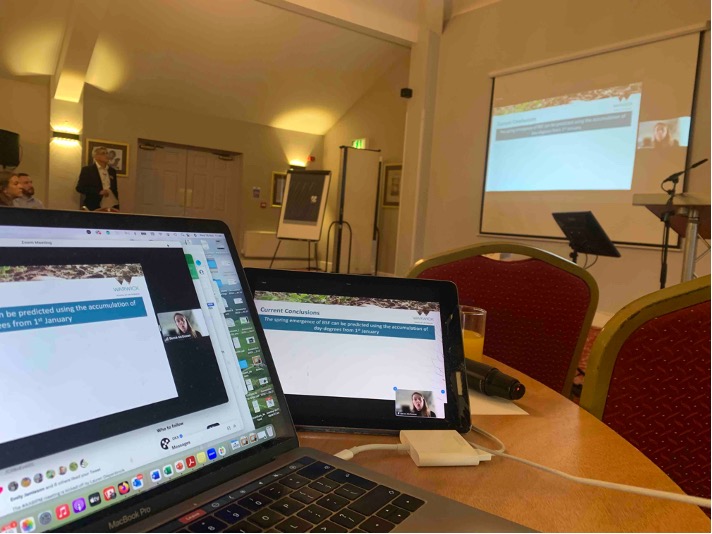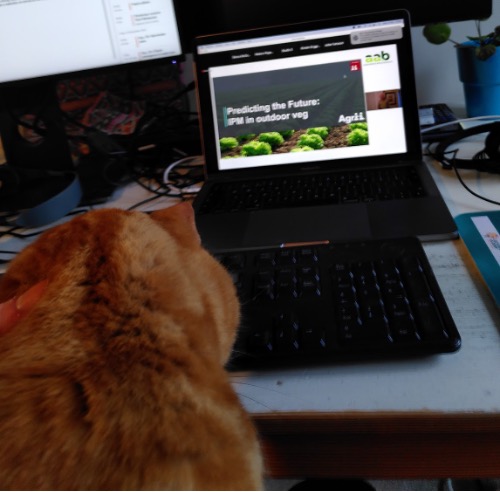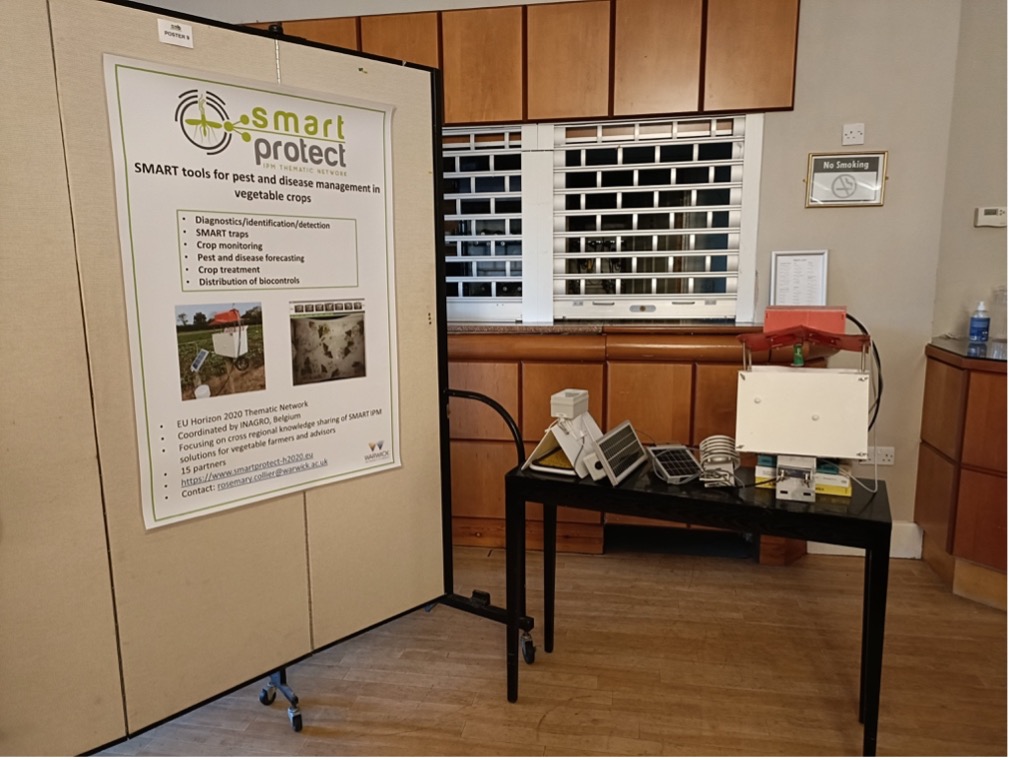AAB IPM Conference 2022
In late November 2022 a few colleagues from Warwick Crop Centre attended ‘Bringing Biocontrol and IPM to Market’, a two-day conference hosted by the Association of Applied Biologists. The event brought together researchers, growers, agronomists and policy makers from all over the globe to discuss the sustainable control of invertebrate pests (and some diseases) in agriculture and horticulture.
Novel research
In the first morning, delegates were taken on a research journey spanning three continents. Lauren Diepenbrock explained the opportunities and barriers for the successful implementation of IPM in Florida citrus. Sophie Manson from Oxford Brooks University presented their findings on the biocontrol of coffee berry borers in West Java. Researchers such as Becca McGowan from Warwick Crop Centre, Lucy Crowther from Lancaster University and Mojgan Rabiey from the University of Birmingham discussed their research on pests and diseases causing substantial crop losses in the UK.

Future proofing the development of IPM
The future of research and development into IPM and biocontrol was discussed in the afternoon. Representatives from Agrii, CHAP, ADAS and NIAB presented opportunities for innovation. Chris (Agrii) and Alex (CHAP) discussed the future of IPM and biocontrol development whilst Sacha (ADAS) and Matevz (NIAB) showed us specific examples of primary research progressing into field application.

Poster session
The poster session in the evening took us on another journey across multiple countries. Posters showed considerations for increasing access to biopesticides in sub-Saharan Africa, research into nematodes in Pakistan and the supply chain of pesticides in Nigeria. Professor Rosemary Collier from Warwick Crop Centre demonstrated newly developed kit for remotely monitoring pest populations.

Practical considerations for successful IPM implementation
At the start of day two presentations were themed: ‘Making it work in the field.’ Two representatives from industry opened the session by giving their perspectives for making IPM interventions successful in the field and for the supermarkets. Researchers addressed the challenges associated with implementing elements of IPM. For example, Aoife O’Driscoll from NIAB discussed the integration of wheat variety mixtures into the UK supply chain.
IPM across the world
In the final session of the conference governance of IPM and biocontrol was compared between countries. Representatives from DEFRA, Rutgers University and Biorationale discussed similar and contrasting legislation and prospects.
Discussion time!
A fruitful discussion occurred in light of the four thought provoking sessions. Delegates were tasked with identifying challenges associated with integrating IPM and biocontrol into the food system. Delegates highlighted a range of issues but also opportunities to make pest management more sustainable. These included, as always, the need for more funding. For example, to carry out the fundamental and applied research into novel biopesticides. Concerns were raised over the loss of AHDB. It was discussed that there was an opportunity to create a new consortium to bridge the gap between the development of IPM strategies and their application. A final unanimous point included the importance of food systems thinking when developing sustainable pest management strategies.
Conclusion
This much anticipated annual AAB conference was an excellent opportunity to hear about new research into pest species of economic importance. It facilitated discussion between different stakeholders in the food system so research gaps could be identified and opportunities for development of new sustainable IPM strategies could be communicated.
Becca McGowan, PhD Student

